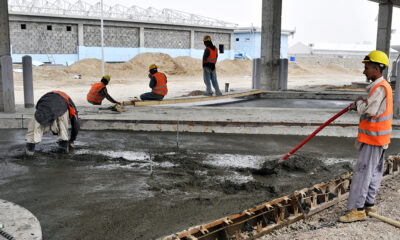Regional
Pakistan cracks down on Imran Khan’s supporters after violence
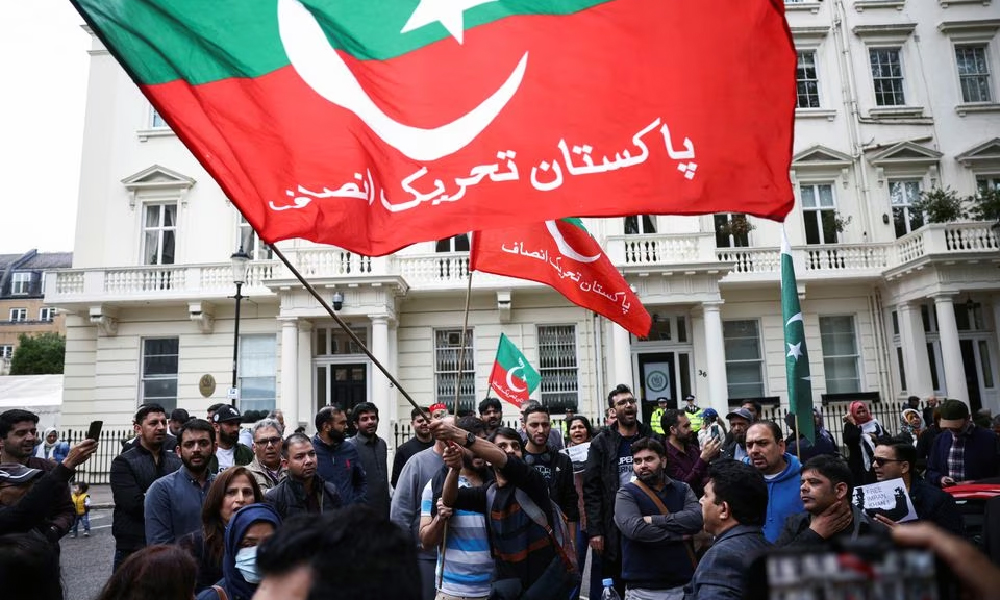
Police in Pakistan have arrested hundreds of supporters of ousted Prime Minister Imran Khan for violence after his arrest on corruption charges, authorities said on Wednesday, deepening a political crisis in the nuclear-armed country, Reuters reported.
Tuesday’s arrest of the former cricket hero, and Pakistan’s most popular politician according to opinion polls, came at a precarious time for the country that is facing a shortage of foreign exchange and a months-long delay of an IMF bailout.
Mobile data services were shut for a second day while Twitter, YouTube and Facebook were disrupted, as security forces tried to restore order after violence killed one person late on Tuesday.
The government said supporters of Khan’s Pakistan Tehreek-e-Insaf (PTI) party had attacked important state buildings and damaged private and public vehicles. Police said 945 of his supporters had been arrested in Punjab province after 25 police vehicles and more than 14 government buildings were set on fire, read the report.
“This can’t be tolerated, the law will take its course,” Planning Minister Ahsan Iqbal told a news conference. “These violent attacks were not the outcome of any public outpouring, they were planned by the PTI rank and file.”
Authorities in three of Pakistan’s four provinces have imposed an emergency order banning all gatherings after Khan’s supporters clashed with police.
Khan, 70, was arrested from the Islamabad High Court by Pakistan’s anti-corruption agency. Police said a court hearing would take place at the police guest house where he was being held in the Islamabad police lines area, Reuters reported.
PTI has called for supporters to gather in the capital and for a “shutdown” across the country of 220 million.
His arrest came a day after the powerful military rebuked him for repeatedly accusing a senior military officer of trying to engineer his assassination and the former armed forces chief of being behind his removal from power last year.
Pakistan’s Dawn newspaper said in an editorial that “the nature and locus of the protests that broke out following Mr Khan’s arrest yesterday signal that public anger is also directed at the military”.
Khan was due to appear for two hearings on Wednesday, Geo News reported, including for a corruption case related to property and another case that alleges Khan unlawfully sold state gifts during his 2018-22 tenure as premier. Khan has denied wrongdoing.
The Pakistani rupee fell 1.3% to a record-low of 288.5 against the U.S. dollar on Wednesday, while the 100-index of the Pakistan Stock Exchange dropped 0.7% in early trading before recouping its losses.
An International Monetary Fund bailout package for Pakistan has been delayed for months even though its foreign exchange reserves are barely enough to cover a month’s imports, Reuters reported.
PTI Vice Chairman Shah Mahmood Qureshi said the party’s senior leadership was in Islamabad to meet Khan and would approach the Supreme Court to challenge an Islamabad High Court order that deemed Khan’s arrest legal.
“We continue to call PTI family workers, supporters and the people of Pakistan onto the streets for peaceful protest against this unconstitutional behaviour,” Qureshi wrote on Twitter.
The protests have disrupted business in several cities. In Peshawar, chicken seller Malagul Khan said his shop and others were destroyed in the clashes, Reuters reported.
Raja Imran, 25, also a Peshawar resident, said, “There is total chaos across the country … There are exams going on and school children will suffer”.
Khan was ousted as prime minister in April 2022 in a parliamentary no-confidence vote. He has not slowed his campaign against the ouster even though he was wounded in a November attack on his convoy as he led a protest march to Islamabad calling for snap general elections.
The corruption case is one of more than 100 registered against Khan since his ouster after four years in power. In most of the cases, Khan faces being barred from holding public office if convicted, with a national election scheduled for November, read the report.
“Imran Khan will have to face the law and if he is cleared he will be contesting elections and if he is found guilty he will have to face the consequences,” Iqbal, the minister, said.
Regional
Lavrov in Uzbekistan for talks on various issues including regional security matters
Lavrov is expected to meet with Uzbek President Shavkat Mirziyoyev and with Uzbek Foreign Minister Bakhtiyor Saidov
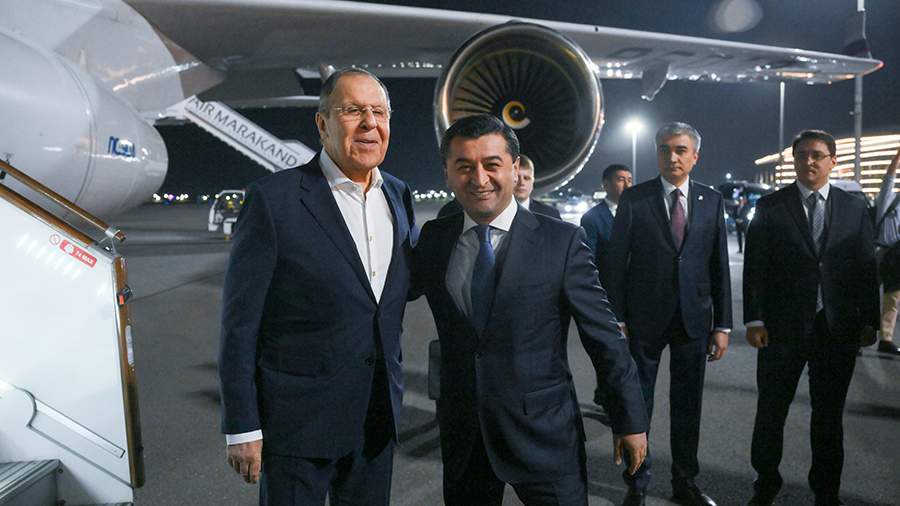
Russian Foreign Minister Sergey Lavrov will meet with Uzbek government officials this week to discuss bilateral relations, Eurasian integration and preparations for the upcoming 80th anniversary of victory over Nazi Germany.
The Russian Foreign Ministry’s official spokeswoman, Maria Zakharova, said Lavrov is expected to meet with Uzbek President Shavkat Mirziyoyev and will hold talks with Uzbek Foreign Minister Bakhtiyor Saidov, TASS reported.
“The sides will discuss current international issues of mutual interest, regional security matters, cooperation within the CIS, SCO and Central Asia-Russia frameworks, taking into account the closeness or similarity between Moscow and Tashkent’s approaches,” Zakharova said adding that “the agenda will also include matters of Eurasian integration processes with Uzbekistan’s observer status in the EAEU in mind.”
During his meetings with leaders of the Commonwealth of Independent States (CIS) last December, Russian President Vladimir Putin invited them to attend the Victory Day celebrations in Moscow scheduled to be held on May 9.
Also, military units from 19 friendly nations have been invited to participate in the Red Square Parade. The list of these countries has not yet been published, but Uzbek troops marched in the Red Square five years ago, during the 75th anniversary of Victory in the Great Patriotic War.
Uzbekistan traditionally holds numerous Victory Day celebrations and campaigns.
Meanwhile, the Russian Foreign Ministry has emphasized that Moscow and Tashkent have “constructive, respectful and mutually beneficial ties, based on the principles of friendship, sovereign equality and respect to each other’s interests.”
The sides actively cooperate in trade, energy, science and humanitarian affairs.
Special attention will be paid to the issue of labor migrants, as around 1.1 million Uzbek citizens are employed in various sectors in Russia.
Talks will also reportedly include Afghanistan, as this is an important subject for the two nations, TASS reported.
Other regional and global issues are also expected to be touched upon during Lavrov’s meetings with Uzbek officials in Samarkand.
Regional
At least 20 feared killed in militant attack on tourists in Indian Kashmir, security sources say
One security source put the death toll at 20; the second put it at 24 and the third at 26. All three spoke on condition of anonymity as they were not authorised to speak to the media.
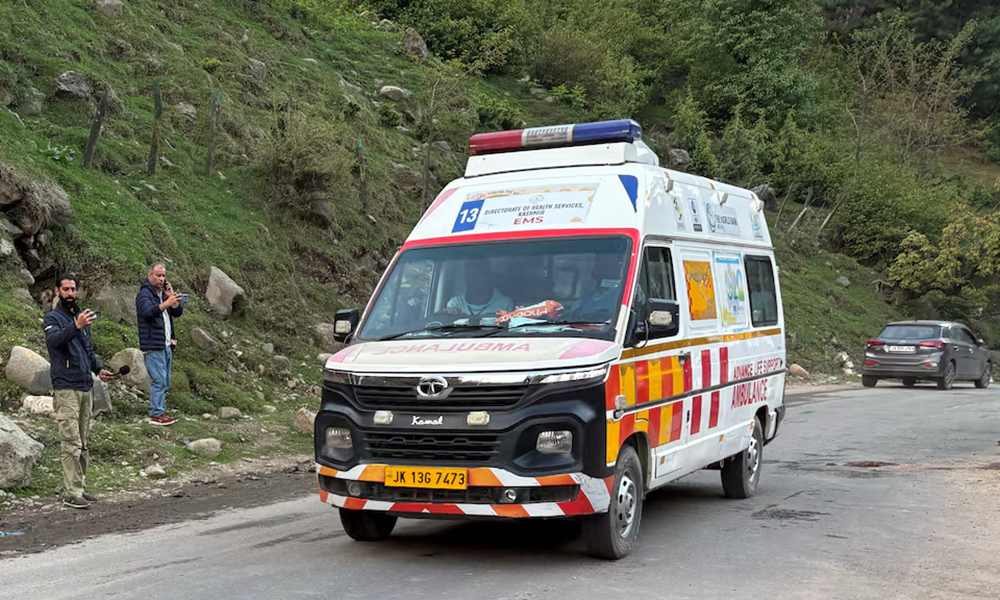
At least 20 people were feared killed after suspected militants opened fire on tourists in India’s Jammu and Kashmir territory on Tuesday, three security sources said, the worst attack on civilians in the troubled Himalayan region for years, Reuters reported.
The attack occurred in Pahalgam, a popular destination in the scenic, mountainous region where mass tourism, especially during the summer, has resurged as Islamist militant violence has eased in recent years.
One security source put the death toll at 20; the second put it at 24 and the third at 26. All three spoke on condition of anonymity as they were not authorised to speak to the media.
“The firing happened in front of us,” one witness told broadcaster India Today, without giving his name. “We thought someone was setting off firecrackers, but when we heard other people (screaming), we quickly got out of there … saved our lives and ran.”
“For four kilometers, we did not stop … I am shaking,” another witness told India Today.
The attack occurred in an off-the-road meadow and two or three militants were involved, the Indian Express newspaper reported, citing an unidentified senior police officer.
“The death toll is still being ascertained so I don’t want to get into those details,” Jammu and Kashmir Chief Minister Omar Abdullah said in a post on X. “Needless to say, this attack is much larger than anything we’ve seen directed at civilians in recent years.”
The nationalities of the victims were not immediately known, read the report.
A little-known militant group, the “Kashmir Resistance,” claimed responsibility for the attack in a social media message. It expressed discontent that more than 85,000 “outsiders” had been settled in the region, spurring a “demographic change”.
“Consequently, violence will be directed toward those attempting to settle illegally,” it said.
Reuters could not independently verify the source of the message.
The regional government of Jammu and Kashmir, where Pahalgam is located, told its legislature this month that nearly 84,000 non-locals, from within India, had been given domicile rights in the territory in the last two years.
“Those behind this heinous act will be brought to justice … They will not be spared!” Indian Prime Minister Narendra Modi posted on X. “Their evil agenda will never succeed. Our resolve to fight terrorism is unshakable and it will get even stronger.”
Indian Home Minister Amit Shah said he was rushing to Kashmir to hold a security meeting.
In Washington, the White House said U.S. President Donald Trump had been briefed on what a White House spokesperson described as a “brutal terrorist attack.”
India’s foreign ministry subsequently said Trump called Modi and “expressed full support to India to bring to justice the perpetrators of this heinous attack.”
Militant violence has afflicted the Himalayan region, claimed in full but ruled in part by both India and Pakistan, since an anti-Indian insurgency began in 1989. Tens of thousands of people have been killed, although violence has tapered off in recent years, Reuters reported.
India revoked Kashmir’s special status in 2019, splitting the state into two federally administered territories – Jammu and Kashmir, and Ladakh. The move allowed local authorities to issue domicile rights to outsiders, allowing them to get jobs and buy land in the territory.
That led to a deterioration of ties with Pakistan, which also claims the region. The dispute has spurred bitter animosity and military conflict between the nuclear-armed neighbours.
Attacks targeting tourists in Kashmir have become rare. The last deadly incident took place in June 2024 when at least nine people were killed and 33 injured after a militant attack caused a bus carrying Hindu pilgrims to plunge into a deep gorge.
Some major militant attacks during the height of the insurgency coincided with visits from high-profile foreign officials to India, in likely attempts to draw global attention to Kashmir, Indian security agencies have said.
Tuesday’s attack came a day after U.S. Vice President JD Vance began a four-day, largely personal visit to India.
Regional
Iran’s top diplomat to visit China on Tuesday
In a trip to Moscow last week, Araqchi told state TV that Tehran always closely consults with its friends, Russia and China, over the nuclear issue.
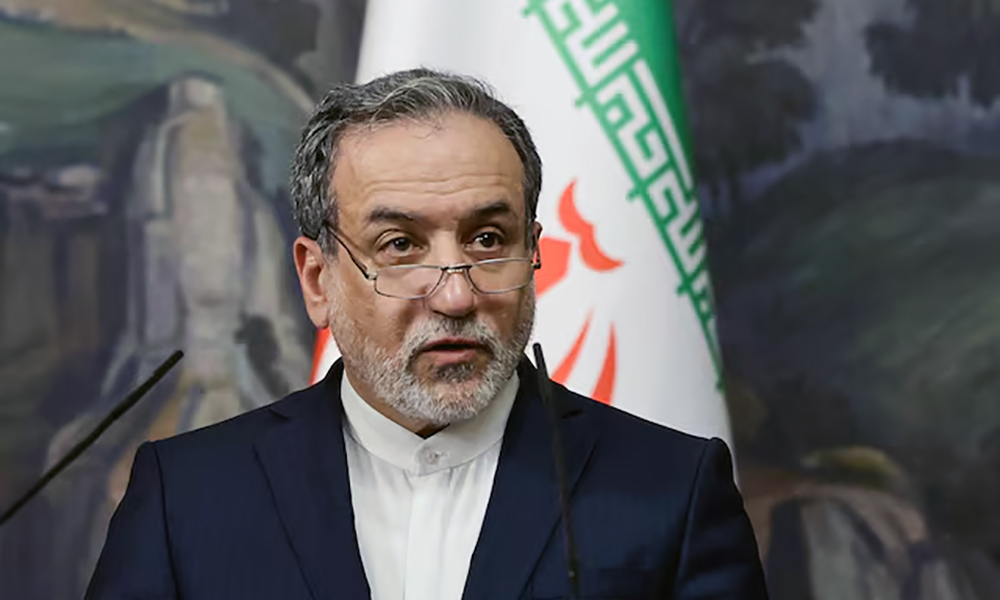
Iran’s Foreign Minister Abbas Araqchi will visit China on Tuesday, foreign ministry spokesperson Esmaeil Baghaei said on Monday, ahead of a third round of nuclear talks between Tehran and Washington due on Saturday in Oman.
In a trip to Moscow last week, Araqchi told state TV that Tehran always closely consults with its friends, Russia and China, over the nuclear issue.
“It is natural that we will consult and brief China over the latest developments in Iran-U.S. indirect talks,” Baghaei said, adding that Beijing can play a constructive role in this process.
Long-time foes Iran and the U.S. started negotiations earlier this month with the aim of placing limits on Tehran’s nuclear programme, which Western powers say is geared toward developing nuclear weapons.
Tehran has long denied such accusations and seeks in exchange the lifting of U.S. sanctions that were re-imposed by President Donald Trump during his first term in office (2017-2021), when he withdrew from a 2015 nuclear pact between Iran and world powers, including China and Russia.
Since taking office in January, Trump has ratcheted pressure on Iran and has for the first time sanctioned Chinese “teapot” refineries – small, independent plants – that process Iranian crude oil and have provided an economic lifeline to Tehran’s squeezed economy.
“The policy of maximum pressure is not just against Iran but also other countries and goes against freedom of trade. In the case of China, sanctions also seek to disrupt south-south cooperation,” Baghaei said.
Beijing accounted for at least 77% of Iran’s roughly 1.6 million bpd of exported crude in 2024, according to analytics firm Kpler. The value of Iran’s crude sales to China is not officially disclosed, but a Reuters calculation puts the trade at nearly $29 billion last year, assuming a 20% discount to Brent crude prices to include the cost of logistics.
“China and Iran have maintained exchanges and contacts at all levels and in various fields. With regard to the specific visit mentioned, I have no information to offer at the moment,” Chinese Foreign Ministry spokesperson Guo Jiakun said on Monday regarding Araqchi’s upcoming visit.
-

 Sport5 days ago
Sport5 days agoAfghanistan qualify for U19 Cricket World Cup 2026
-
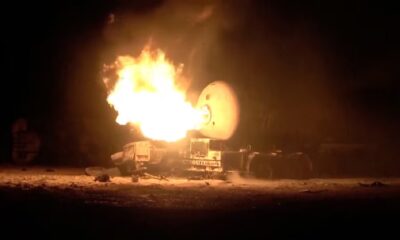
 Regional5 days ago
Regional5 days agoDeadliest US strike in Yemen kills 74 at oil terminal, Houthis say
-

 World4 days ago
World4 days agoThousands of protesters rally against Trump across US
-

 World5 days ago
World5 days agoIran, US end nuclear talks in Rome, agree to meet next week
-

 Latest News4 days ago
Latest News4 days agoPolio vaccination campaign launched in Afghanistan
-

 International Sports4 days ago
International Sports4 days agoIPL 2025: 14-year-old Vaibhav Suryavanshi becomes youngest IPL player
-

 International Sports2 days ago
International Sports2 days agoIPL 2025: Robo-Dog ‘Champak’ explained
-

 Latest News3 days ago
Latest News3 days agoChina invites various Afghan delegations to attend Shanghai forums










